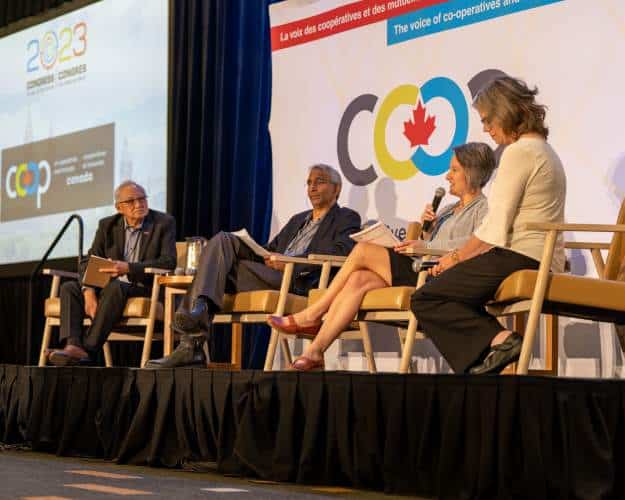Tapping the Power of Co-operatives: Lessons from Eswatini
The Technical Assistance Partnership (TAP) initiative implemented by Alinea International and funded by Global Affairs Canada is working in collaboration with co-operatives and community development researcher Fiona Duguid and the Government of Eswatini’s Ministry of Commerce, Industry and Trade and the Ministry of Agriculture to strengthen the agriculture cooperative and the small-medium enterprise sectors of the country through the cooperative model.
Fiona generously shares her experiences in this blog and highlights cooperative events she attended, offering a unique and insightful perspective into her incredible work in Eswatini. Drawing from her expertise and unyielding dedication, she unveils the power of the cooperative model.
By Fiona Duguid
Recently, I had the incredible opportunity to assist the government of Eswatini’s Ministry of Commerce, Industry, and Trade, along with the Ministry of Agriculture, in strengthening the country’s agriculture cooperative and small-medium enterprise sectors through the cooperative model.
After my work in Eswatini, I was invited to speak at various cooperative events in Canada, where I shared insights and experiences from my time in Eswatini.
Firstly, I spoke at the Canadian Association for the Study of Co-operation (CASC) annual conference, which took place at York University, Toronto, from May 29-31. This conference brought together a keen group of academics, researchers, educators, and practitioners involved in co-operatives and co-operation. During my presentation, “Opportunities and Strengthening the Cooperative Sector in Eswatini,” I discussed the TAP-EDM program and the collaborative efforts with the Eswatini Co-operative Development Department. We explored the possibilities for the co-operative sector to contribute to the growth of the local and domestic economy, generate employment, and provide goods and services to communities, focusing on empowering youth (under 35 years old) and women.
The audience learned about Eswatini, a country not often discussed in Canada, and gained valuable insights into the Eswatini co-operative sector. We also highlighted the shared challenges and opportunities between the Eswatini and Canadian co-operative sectors. It was an excellent platform to showcase the impact of the TAP-EDM program and the potential of co-operatives in both countries.
Next, I participated in the Co-operative and Mutuals Canada (CMC) Congress, which had the theme “Co-ops for the Future” and was held in Ottawa from June 12-14. This event gathered over 200 co-operators and co-op enthusiasts from across Canada. As part of the panel on “Global Co-operative Trends,” moderated by Sanjeev Singh from the Co-operative Development Fund, I joined Robby Tulus, International Cooperative Expert, Karen Miner, International Centre for Co-operative Management, SMU and other experts to explore how co-operatives can contribute to the newly adopted UN resolution promoting the Social and Solidarity Economy (SSE). Drawing from my experience with the TAP-EDM program in Eswatini, I emphasized how co-operatives like Savings and Credit Co-Operative Society (SACCOS) can significantly expand, invest, and nourish the SSE by keeping money local and injecting funds into the local economy.
Another topic discussed during the panel was the pressing issues that the world faces today, such as gender equality and youth unemployment. I highlighted the immense opportunity for the Eswatini co-operative sector to advocate for these issues, as they share many challenges with Canada, including rural out-migration, precarious work, and the need to meet domestic and export demands.
Lastly, we addressed what Canadian co-operatives can learn from global experiences, particularly from the robust support provided by the Eswatini government to its co-operative sector. The presence of over 35 government employees working in the Co-operative Development Department demonstrates the dedication to supporting co-operatives and ensuring their success. This kind of government support has also proven crucial for the mature co-operative sector in Canada.
In conclusion, the speaking engagements at the co-operative events in Canada provided an excellent platform to share the success of the TAP-EDM program in Eswatini and shed light on the potential of co-operatives in both countries. It was a rewarding experience to connect with researchers, practitioners, and enthusiasts who share a passion for co-operation and its positive impact on local economies and communities.
Background Information:
- Strengthening of the Agriculture Cooperative and the Small Medium Enterprise Sectors in Eswatini
- Fiona Duguid, researcher, teacher and analyst



